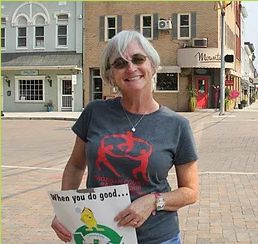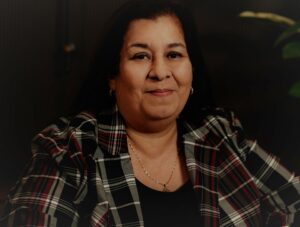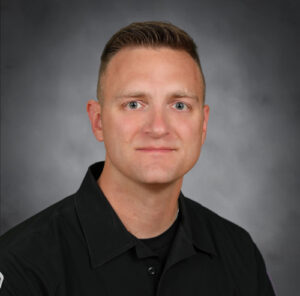In their video presentations our four panelists addressed the following guide questions...
What is the relevance of the “eight pillars of positive peace” and the core values of peace, for our schools and communities?
What are the “systemic” causes of the two challenges and “conflicts” presented?
What are emerging lessons learned, good practices and skills for enhanced peacebuilding and conflict resolution?
How can these lessons and practices be applied to peacebuilding and conflict resolution in our families, schools, communities?

What is Peacebuilding? Frameworks and Ideas
MAIN TOPIC
Presented by Mr. Flavio Bollag
Executive Director, Outward Bound Center for Peacebuilding www.outwardboundpeace.org
Flavio Bollag joined the Outward Bound Center for Peacebuilding as the Advancement Director in May 2015 and he has served as Executive Director since 2019. His roles at OBCP have included program leadership, development and oversight, fundraising and communications, and facilitation. All of which have given him the challenging and rewarding role of capturing and telling incredible stories of extraordinary people in our programs. Together with Ana Patel, he is the co-editor of Experiential Peacebuilding, and he has helped to develop and share experiential activities on the topics of Positive Peace with numerous partner organizations including Rotary International.
Flavio studied English and history at Middlebury College, where he also spent many hours exploring the Green Mountains, and holds a Master’s degree in Comparative Literature from Rutgers University. An avid cyclist and triathlete, he is always seeking new races and challenges in the northeast. He and his wife and their two daughters live in Smithtown, New York.
This presentation presents some foundational ideas and questions in the areas of peace and peacebuilding, such as: What is peace? What do we mean by peacebuilding? How can we better understand these big ideas in a global level and at a local level. The presentation includes an overview of vital concepts like Positive and Negative Peace, the Eight Pillars of Positive Peace and the ideas of Connectors and Dividers. This presentation is meant to be an introduction and to help position the Youth & Peace In Action initiative for the 2021-2022 year.

Positive Values Framework to Support Living Out Peacebuilding
MAIN TOPIC
Presented by Angie Hott
Positive Action and Digital Media Facilitator Morgan County Partnership
A native of Morgan County, WV, Angie Hott is a 1983 graduate of Berkeley Springs High School. She went on to earn a BA in Theatre Arts from the University of Massachusetts, worked and lived in Chicago, and returned to the WV hills in 1997 when she and her husband raised 4 children, and now a grandbaby on the way! Mrs. Hott has worked in Morgan County Schools since 1999, volunteered within the community, and recently facilitated Positive Actions for the last 8 years in the classroom and, since 2020, online with PositiveValuesNetwork.com
The Morgan County Partnership uses Positive Actions, prevention, and wellness to discover student’s self concept, promote physical and emotional wellness, inspire intellectual wellness, and raise developmental assets in order for children to reach their individual academic achievement and success; fostering healthy choices today for a strong tomorrow, at home, school, and in the community.
Positive Actions is an integrated and comprehensive curriculum that is designed to improve achievement, school attendance, and problem behaviors such as substance use, violence, suspensions, disruptive behaviors, dropping out, and sexual behavior. It is also created to improve parent-child bonding, family cohesion, and family conflict. And, PA gives hope to heal system causes of conflict within families and groups when conflict can lead to poor performance, addictions, or even incarcerations.
Mrs. Angie Hott shares a recent hate incident which occurred during the 4th of July celebration held in Berkeley Springs, WV, carried out by protesters from out of town, and its impact on local teens.
Recognizing that negative actions such as this recent hate incident may be the result of systemic issues, Mrs. Hott asks teens from Berkeley Springs HS the following question: “What do you need to feel happiness and success?” By examining fundamental core values, Mrs. Hott concludes that we discover that most individuals have similar desires and aspirations.
Mrs. Hott shares the following 4 main messages:
- 5 core values for achieving peace in schools and communities: optimism; hope; transparency; empathy; empowerment; and creativity;
- systemic causes of conflict within families and groups involve, basically, selfishness;
- positive practices and tools to apply to achieve Positive Actions and enhance peace building among families and our school communities include 5 “Ls”: Listen; Learn; Look; Link; and Love; and
- creative peacebuilding initiatives lead by Morgan County Interact/PAWsitive Partner teens, including students at Berkeley Springs High School, include: development and approval of the Diversity, Equity and Inclusion statement; Collected Kindness Collection of Books; and a functional Cultural Garden.

Strategies for Prevention of Violence in Our Schools and Communities
MAIN TOPIC
Guadalupe Cruz
Director, Latin America Programs, Cure Violence Global (NGO)
Guadalupe Cruz is the Director of Training for Latin and Central America. She has been a key member of the Cure Violence team since 2009. She started as a CeaseFire Violence Interrupter. In 2011, she was promoted to supervisor of all Latino Violence Interrupters in Chicago. In March 2014, her role expanded to incorporate training responsibilities in Latin and Central America. She is responsible for overseeing implementation of the Cure Violence model in South Africa, Honduras, Puerto Rico, Mexico, and Canada. In this capacity, she provides training and technical support to all the local partner organizations implementing the Cure Violence model in these countries.
The presentation by Guadalupe Cruz focuses on sharing the experiences and good practice approaches arising from her ongoing work as Director of Latin America for Cure Violence Global/CVG. It is a well-known NGO, which has developed practical approaches to preventing violence in many countries of the world, including active engagements in school environments. A premise of CVG is that violence is a type of behavioral “epidemic” which spreads, similar to a health epidemic, and which needs to be controlled effectively.
One of the main causes of violence arises from children who grow up in broken homes, with poor values, and where often they experience different types of abuse and negative behavioral examples by their parents. These children, in turn, spread abuse and different forms of violence in their schools and communities. Often, children and youth become members of gangs, which often contribute to another avenue of violence in schools and communities. The different types of violence in schools include: physical violence; different forms of bullying, including cyberbullying; misuse of social media; and retaliation in different forms.
Ms. Cruz shared profound life stories, insights and practical suggestions to prevent and manage different forms of violence, especially in school environments. Some of the main suggestions include the need to:
- Become “interrupters” of the different forms of violence; various schools have taken effective student-led anti-bullying initiatives, often before the police get involved;
- Take time to listen carefully to persons who demonstrate violence and aggression, to better understand them, to encourage acceptance of them, and to involve them in constructive activities;
- Help build bridges that can enable persons to be accepted and counselled by others, who can help them find appropriate ways to change their violent orientations and behavior, and to make healthier decisions,

Family Challenges: Trends & Constructive Responses
MAIN TOPIC
Sgt. Ben Williams
Youth Leader and Prevention Officer for Jefferson County High School
Ben is a husband and the proud father of four sons. He is employed as a deputy sheriff and has been for approximately eighteen years. He holds the rank of sergeant with the Jefferson County Sheriff’s Department, located in Charles Town, West Virginia. He graduated from the West Virginia State Police Academy in 2003. He received my bachelor’s degree in organizational leadership from Mountain State University in 2012. He continued his education and obtained my master’s degree in Evangelism and Church planning from Liberty University in 2016. He is an ordained pastor and chaplain, and pastor one of our local churches, Focus Ministries.
Ben’s current duty assignment with the Jefferson County Sheriff’s Department is as the Prevention Resource Officer at Jefferson High School. He considers it an honor and privilege to serve our youth and community for the past five years in this capacity. With his daily activities he gets to mingle, interact, be present, and involved in the lives of our youth. In his capacity as a deputy sheriff, he gets to assist not only in our youth’s day-to-day activities at school, but be a bridge builder from the school to the community. He has the privilege of helping our youth navigate some of the complications they experience in and outside of school.
Ben Williams’ presentation focuses on highlighting the various family challenges being experienced by high school students (and other youth), and suggests constructive and practical approaches which students and adults can take to heal and enhance family relationships.
There is a common denominator among most students in local high schools, in our area and USA, namely: different forms of “family challenges”. The statistics show negative trends, in terms of percentage of “broken” and “divided” homes, and different types of family “trauma” being experienced by students. This trauma is transmitted to the school environment through bullying and other forms of violence and aggression, as well as contributing to anxiety and depression. An informative and useful website resource which highlights these family challenges is www.fatherhood.org.
Mr. Williams highlights three core underlying causes of family challenges, and corresponding positive principles which provide a “roadmap” to promoting “healthy” families: purpose; perspective; and peace. He also highlighted the importance of students breaking the “cycle” of broken homes through becoming a better model as a teenager and as an eventual parent.
Mr. Williams shared useful constructive approaches and skills to enhancing family relationships, including:
- Identify and access the available resources in your schools and community, including youth groups in local churches and other organizations;
- Seek to promote good relationships, with your parents and friends;
- Parents to become good role models, which can be part of a healthy cycle in the future;
- Listen, with empathy; both parents and children need to better listen to one another;
- Practice a more active “presence” with parents and friends struggling with family challenges;
- Become a positive mentor to your friends, especially those experiencing family challenges.
